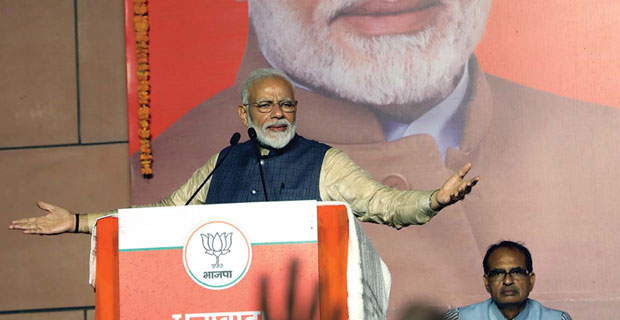Narendra Modi—the Great Unifier
After smashing through all bastions in north and middle India — from Haryana, Himachal, Uttarakhand and Delhi in the north to Bengal ...
The almost imperceptible shift in India of the middle ground of public opinion in favour of Hindu ultra nationalism rather than Hindutva is clear as daylight. Hindutva has actualised into a Hindu identity shift. Hindutva may not necessarily mean Ram Temple and Ayodhya anymore, but a more aggressive mien displayed by Hindus who want to reclaim their identity and land. Aggrieved as they reckon they are after years of minority pacification. I condemn these lynchings, an offshoot of lumpenisation and mobocracy, but equally understand the need for Hindus to reclaim their identity.
The wave of majority identity politics across the world is a harsh reality. Majoritarian impulses have sparked humiliation of religious minorities and lower castes in India, driving a cleave within the fabric of India. The faultlines have become so stark that the Congress under Rahul Gandhi tried practicing a similar type of soft Hindutva identity politics. Nida Kirmani, a Associate Professor of Sociology in the School of Humanities and Social Sciences at the Lahore University of Management Sciences and her views published in the Dawn sometime back provide an interesting prism: The seeds of this majoritarianism were not only present in the explicitly right-wing BJP but were also present in the rhetoric of the Congress party. And alongside the bonds of cooperation and friendship between religious communities were also strands of resentment and distrust, which flared up periodically. Modi did not create Hindu majoritarianism. He only stoked the embers that had been simmering in the Indian polity for several decades. However, India is not exceptional; majoritarianism is not an exclusively Hindu malaise. Like twins separated at birth, India and Pakistan both continue to carry the same toxic ingredients within our countries’ DNA.
Somewhere in these two-three lines remains buried the Modi DNA, that he is not the creator of Hindu majoritarianism, but has played on the underlying fears of the Hindu majority embedded deep in their psyche. It is very subtle at one level, but the contagion of stimulating the threshold of this particular sensation has spread far and wide. It has kick-started a consciousness that the minority has been given too much and it is constantly taking from the majority. More than that, it will become the majority in India if this process of appeasement continues—is another strand to this theme. While this may not be true, the latent and dormant intuitive mind listens to the inner voice which plays on these very underlying fears.
Majoritarianism is a global phenomena, an offshoot of terrorist attacks and the rise of Islamists and Jihadists. Kenneth Roth, writing in the World Report succinctly articulates its dangerous rise: The appeal of the populists has grown with mounting public discontent over the status quo.











Comments.